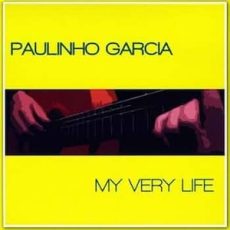
Daily Dose Of Jazz…
Paulinho Garcia was born on August 16, 1948 in Belo Horizonte, Minas Gerais, Brazil and began his musical career at the age of nine as a singer in a Sunday children’s program in the city’s principal radio station, Radio Inconfidencia. His teens saw him performing as a house musician in all musical programs of the Radio network, Guarany—TV Itacolomy.
He led his own band, Os Agitadores, and with them recorded his first two albums. Before his arrival in the United States in 1979, Paulinho composed, arranged, produced, and performed jingles for HP Studios. Four of his commercials received national awards.
After his move to Chicago, Illinois he performed and recorded two albums with the band Made in Brazil. In 1991 he founded his own band, Jazzmineiro, and their 1996 recording received excellent reviews in the Chicago Tribune, Jazziz magazine, the Brazilian Music Review, and The Brazilians.
Paulinho has been the recipient of numerous awards and accolades for his music and bands. He has toured Japan, Poland, Prague, Bratislava, Netherlands, Hong Kong, and Bangkok and performed at several jazz festivals and jazz cruises. With the addition of Polish singer Grazyna Auguscik, Two for Brazil with Greg Fishman became Three for Brazil.
Garcia released My Very Life to critics and audience praise and was nominated for a Grammy for Best Latin Jazz Recording among 25 of the best, and was nominated for the Brazilian International Press Award.
Guitarist and vocalist Paulinho Gatcia continues to perform, tour and record.
More Posts: bandleader,guitar,history,instrumental,jazz,music,vocal
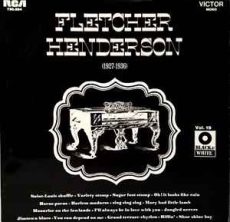
Daily Dose Of Jazz…
Clarence Holiday was born Clarence Halliday on July 23, 1898 in Baltimore, Maryland and attended a boys’ school with the banjo player Elmer Snowden. Both of them played banjo with various local jazz bands, including the Eubie Blake band. At the age of 16, he became the unmarried father of Billie Holiday, who was born to 19-year-old Sarah Fagan, but rarely visited them. He moved to Philadelphia, Pennsylvania when he was 21 years old.
Holiday played rhythm guitar and banjo as a member of the Fletcher Henderson Orchestra from 1928 to 1933. He went on to record the following year with Benny Carter, then Bob Howard in 1935 and worked with Charlie Turner, Louis Metcalf, and the Don Redman Big Band between 193 and 1937.
Exposed to mustard gas while serving in World War I, he later fell ill with a lung disorder while on tour in Texas. Refused treatment at a local hospital when he finally managed to see a doctor, Clarence was only allowed in the Jim Crow ward of the Veterans Hospital. By then pneumonia had set in and without antibiotics, the illness was fatal.
Guitarist and banjoist Clarence Holiday died in Dallas, Texas on March 1, 1937.
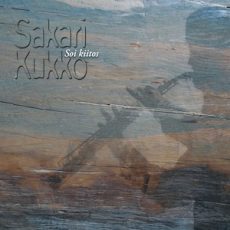
Daily Dose Of Jazz…
Jyrki Sakari Kukko was born July 8, 1953 in Kajaani, Finlan and started his career in the early 1960s as a singer participating in several singing contests and performing in radio stations, TV programs and other venues. At the age of 7, he began taking piano lessons and soon after started playing guitar and flute, then saxophone. The mid-1960s saw him forming bands, constructing a school band, playing mainly rock and roll, before forming a group of local dance bands.
He embarked his career at sixteen playing with the Kajaani Big Band, Kisu & Uniset, Markku Suominen’s Monopol, Tapiola Big Band, Oulunkylä Big Band, Maarit & Afrikan Tähti, Kalevala, SIMO Big Band, Jukka Tolonen’s band, Heikki Sarmanto’s band, Sensation Band of Addis Ababa, Mahmoud Ahmed’s Ibex Band, Etoile de Dakar, and Espoo Big Band through the Seventies. He founded the group Piirpauke in 1974.
He has performed with Youssou Ndour, John McLaughlin, Pat Metheny, Bob Mose, Lester Bowie, Charlie Mariano, Thad Jones, Paquito d’Rivera, Ted Curson, Walter Bishop Jr., Herbie Hanckock’s HeadHunters, Richie Cole, Juan Carlos Romero, and numerous Finnish musicians.
Working as a studio-musician Kukko performed as a freelancer with the Helsinki Philharmonic Orchestra, Finnish Radio Symphony Orchestra, and the Finnish National Opera. He has composed music for his own bands, EBB, Koiton Laulu and several films and theaters.
Pianist, flutist, guitarist, saxophonist, vocalist and composer Sakari Kukko continues to perform with over forty countries around the globe.
More Posts: bandleader,composer,flute,guitar,history,instrumental,jazz,music,piano,saxophone,vocal
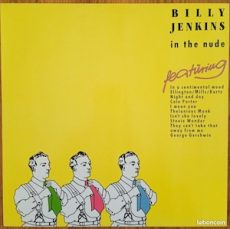
Daily Dose Of Jazz…
Charles William Jenkins was born July 5, 1956 in Bromley, Kent, England and was known to the jazz and blues worlds as Billy. He began learning the violin from the age of nine and two years later added piano and choir. By twelve he taught himself to play the guitar.
As a young teenager, Billy started regular jam sessions in the basement of the bohemian twenty-three room former hotel where he grew up. This jam session attracted many local contemporaries, his best friend at the time, Bill Broad, who the world came to know as Billy Idol and Steven Bailey, later to become Steven Severin.
During those teen years he performed in local church halls, USAF Bases in East Anglia, riverside pubs, local colleges and clubs under various names 1970-72. Jenkins toured and recorded for Arista Record’s Clive Davis with art rock band Burlesque from 1972-77, performed as a young adult with ‘alternative musical comedy’ duo The Fantastic Trimmer & Jenkins from 1979-82 and drummer Ginger Baker before founding the VOGC, the Voice of God Collective.
From 1983 – 93 he lived and worked at Wood Wharf Rehearsal Studios in Greenwich, England. Since then Billy has produced a large body of over 40 recorded albums including Scratches of Spain, Motorway At Night, Entertainment USA and Music For Two Cassette Machines. Some of his recordings are about his SE London environs and include Sounds Like Bromley, Greenwich, Still Sounds Like Bromley and Suburbia.
Guitarist, composer and bandleader Billy Jenkins, who is immersed in improvisation as ell as standards, continues to pursue his love of jazz and blues.
More Posts: bandleader,composer,guitar,history,instrumental,jazz,music
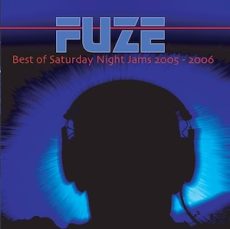
Daily Dose Of Jazz…
Joe Purrenhage was born on June 21, 1966 and grew up outside the Detroit, Michigan area where he picked up an interest in classic rock, jazz and blues. His formal training was minimal with only a couple of years of piano lessons at a young age and percussion in the high school band. However, he started to teach himself the bass, guitar, keyboards and synthesizer programming.
Enlisting in the Air Force he met many musicians with different infuences and styles. After the Air Force, Joe focused on starting an all original band with some friends and had some limited success with a pop/rock band called Earthbound. In the early 1990s Joe met drummer Marcus McGlown and a musical friendship was started that continues today.
Marcus and Joe started something that had a little more of the ’70s fusion flavor to it. Calling guitarist Craig Wisper they sowed the seeds to the modern fusion group Fuze. Their improvisational approach to music was heard at the Saturday Night Jam where all boundries were dropped for a unique blend of rock and jazz.
By 2000, Doug Nolls joined the band and after building a studio released their debut project across social media garnering 100,00 plus plays over three years.
Joe Purrenhage and Fuze continue to create new music and self-produces their works to keep the fusion spirit alive.
More Posts: bandleader,guitar,history,instrumental,jazz,keyboard,music





